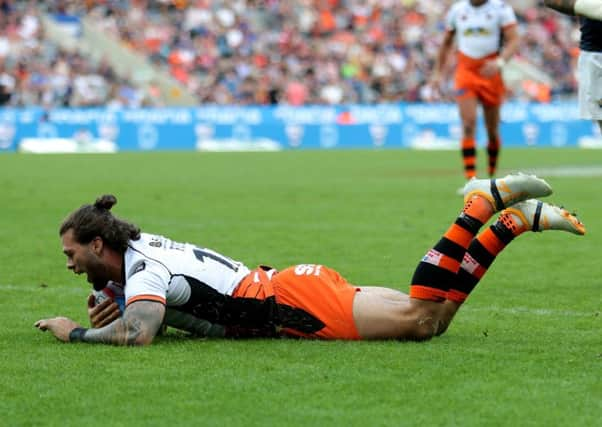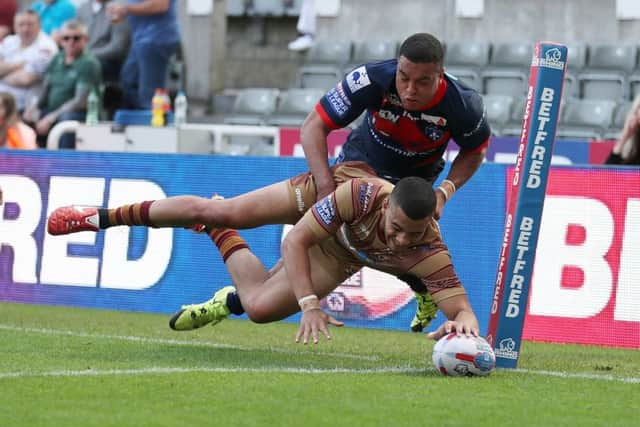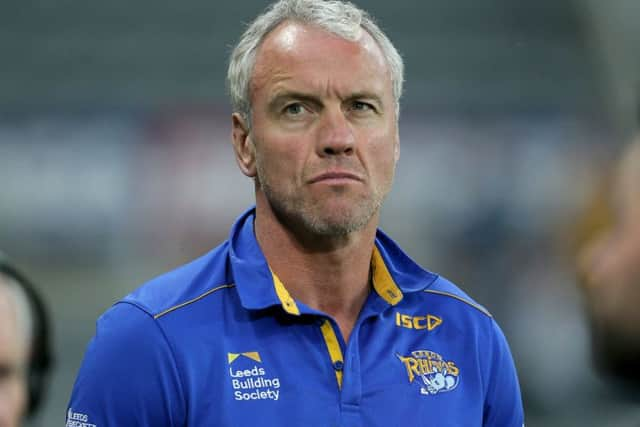Peter Smith: Weekend maybe not as Magic as RFL thinks


Last week was no exception. The governing body’s interim chief executive Ralph Rimmer claimed: “This weekend is one of the most innovative in sport and we have seen it become increasingly successful since it was first held 11 years ago.”
The first part of that statement is probably true, but the “increasingly successful” bit is debatable, on and off the field.
Advertisement
Hide AdAdvertisement
Hide AdThe 2018 total attendance of 64,319 was down on the previous two years and neither day (38,881 on Saturday and 25,438 the following afternoon) was an event record.


It has grown since the inaugural Magic in Cardiff 11 years ago, when 58,831 attended, but by now, as an established part of the calendar, it should be doing better.
There’s a lot to like about the Magic Weekend – particularly the carnival of rugby league aspect – but is it a better showcase for the sport than the Challenge Cup final?
That’s a decision the sport has to make. Switching the Cup final from April/May to August paved the way for the Magic Weekend, but the knockout competition is now struggling and much of that is due to scheduling.
Advertisement
Hide AdAdvertisement
Hide AdGaps between the later rounds make it difficult to maintain interest and the late August final is too close to the Super League title decider at the start of October. A May final would allow the competition to be played in pre- and early-season and provide a spring weekend out, while also ensuring all the focus at the end of the year is on the race for the league crown.


However, there seems to be a commitment among the RFL and clubs to persist with Magic and there isn’t room in the calendar for two – or three, including the Championship’s Summer Bash – big spring events.
One of the big problems with Magic is it unbalances the fixture list, making for 23 rounds in the regular season.
It is also unfair. St Helens had a clear advantage this year, the league leaders taking on 10th-placed Widnes Vikings while second-placed Wigan Warriors played Warrington Wolves, who are third.
Advertisement
Hide AdAdvertisement
Hide AdHull, who began the round in fourth spot, played second-bottom Hull KR, but Castleford Tigers and Leeds Rhinos – fifth and sixth – squared off. Ironically, the supposedly one-sided games were more competitive, but Hull KR and Widnes are scrapping for their top-flight lives and were put at a disadvantage compared with their rivals.
Matches seem to be devised for their fan appeal, but that suggests a lack of faith in the event itself and this year there were no classic games and only one close result.
Instead, fixtures could be decided through an open draw, or based on league positions the previous season.
Both those methods have been tried in the past and discarded. Alternatively, Magic could take place as normal round in the regular season – in other words, every match would be somebody’s home game.
Advertisement
Hide AdAdvertisement
Hide AdThat clearly wouldn’t be well received by clubs, even if it was done on a rotation basis and would mean some sides had one more home fixture than their rivals. Another option is to base fixtures on the league table at the start of the Magic round, so top plays second, third meets fourth and so on.
Magic follows the sixth round of the Challenge Cup, so fixtures would be known two weeks in advance, giving coaches and players enough time to prepare and for most fans it wouldn’t make any real difference, particularly if the event returns to Manchester.
Those planning to make a weekend of it will book well in advance, whatever the fixtures and everyone else will travel on the day.
Amending the fixture format would freshen up the event, but the governing body are more likely to opt for a different venue. It may be time for a change, but it needs to go somewhere with Newcastle’s qualities: a lively city, with the stadium right in the centre, far enough away to make it a weekend destination, but easily accessible.